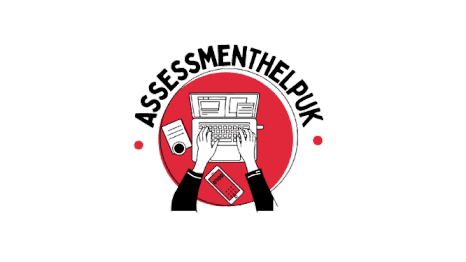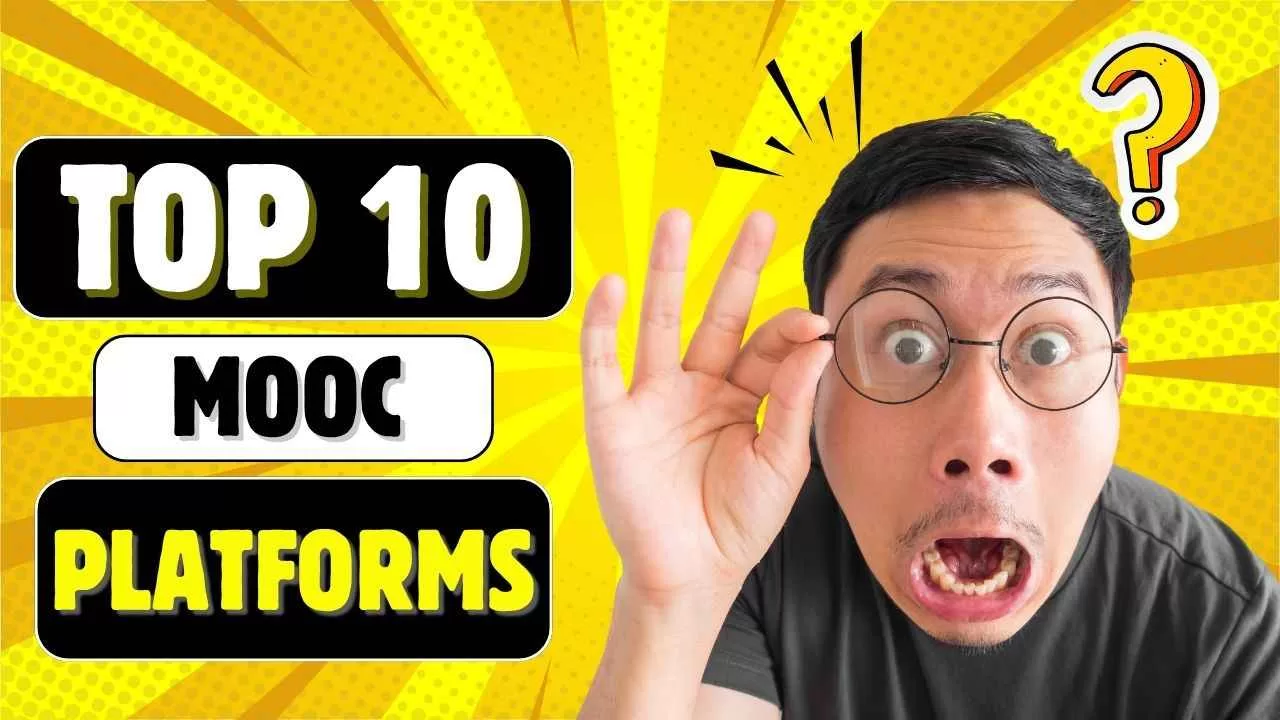The Rise of MOOCs, Learning Without Boundaries
Education is no longer limited to lecture halls or the four walls of a typical classroom. Today, anyone with an internet connection can access lessons from the top universities, get used to new skills, or even explore personal passions, all with the help of MOOC platforms. Short-term for Massive Open Online Courses, MOOCs have shifted their dynamics about how we learn, breaking barriers of geographical factors, cost, and accessibility.
From growing teenagers learning to code to mastering digital work, MOOCs are shaping what it means to be a lifelong learner. This digital classroom evolution isn’t just a trend; it’s a movement that shapes the future of education. And in this blog, we will be exploring the top 10 MOOC platforms that are exponentially leading this global transformation and the ways they’re revolutionising the way learning was before.
How MOOCs Transformed the Learning Landscape
Gone are the days that saw a massive change in how education was accessed and delivered. When learning was tied to classrooms or institutional boundaries. MOOC platforms have broken the boundaries by pushing new dimensions of accessibility, allowing anyone, anywhere, to learn from top-notch educators.
The movement started in the early 2010s with leading names such as Coursera, edX, and Udacity, which gave open access to university-level courses online. What initially started as an experimental approach soon became a global phenomenon, one that democratised education for millions. MOOCs proved that high-quality learning doesn’t have to be exclusive or expensive; it can be shared, open, and available to all.
Education Without Walls, A Global Classroom
MOOCs have made it highly possible for a learner in a small town to take a data science course from Stanford or for a teacher in Algeria to upskill in the digital realm through Oxford. This seamless approach represents a major shift in the philosophy of education, from limited access to universal inclusion.
Here, flexibility has been a core part of their success. With such training, students can easily track progress at their own speed, fitting education around work or family responsibilities. As for professionals, MOOCs fill up the gap between academia and real-world skills, offering certain certification that enhances employability in the competitive markets.
The Democratisation of Knowledge
Indeed, the greatest achievement of the MOOC Platform is in its ability to keep everything synchronised with attainable opportunities. Via affordable and free courses, they have dismantled the barriers of geography, income, and institutional privilege. Having partnerships with universities, governments, and tech companies has bonded this ecosystem, making online education more credible, authentic, and career-oriented.
Top 10 MOOC Platforms Revolutionising Online Learning
The MOOC landscape is filled with some of the most iconic, creative, and accessible information that you can possibly ever find. Each of these platforms can bring unique challenges to online education, from academic partnerships to hands-on skill development. Here are the ten most handpicked MOOC platforms that lead in shaping the future of digital learning.
1. Coursera
The most iconic names of all time in the MOOC world, Coursera, collaborate with the top universities and industry leaders such as Google and Yale to offer professional certificates, degrees, and even short courses. It’s a perfect combo of flexibility, affordability, and instant accreditation that makes it ideal for students and professionals.
2. edX
Initially founded by Harvard and MIT, edX strongly focuses on academic excellence and structured learning. It’s “MicroMasters” and “Professional Certificates” bridge the gap between formal education and career advancement, a strong choice for learners who are looking for university-quality content.
3. Udemy
Udemy allows instructors all across the globe to create and share their expertise, with more than 200,000 courses. It’s a true hub for self-paced learners looking for practical learning and looking to cover nearly everything from coding to communication.
4. FutureLearn
An understated platform to be on this list, but this one deserves a spot. A UK-based platform, FutureLearn, blends academic norms with social learning. Its discussion-driven courses allow interaction, making it optimal for students and educators who enjoy having strong collaboration or constructive debate.
5. Khan Academy
This doesn’t need any introduction; Khan Academy remains a pioneer in free education. Having a strong focus on school-level subjects, it’s shifting foundational learning for students and teachers alike, offering interactive exercises and progress tracking at no cost.
6. Skillshare
Creativity flows on Skillshare, a lively platform that is centered around design, photography, business, and lifestyle skills. Its project-based approach makes learning more hands-on, inspiring professionals and hobbyists to turn skills into high-paying careers.
7. Swayam
Swayam is an initiative by the Government of India, providing top-quality education in various regional languages. It’s a powerful tool for bridging educational gaps in developing regions and ensuring digital embrace.
8. Udacity
Better known for its “nanodegree” programmes, Udacity excels in tech-driven learning, AI, data science, cloud computing, and much more. Its partnerships with leading companies like AWS and IBM ensure job security and credibility.
9. LinkedIn Learning
LinkedIn learning integrates professional development with career growth. Learners can display various certificates on their profiles, making it optimal for professionals who are seeking visible skill enhancement.
10. Canvas Network
A collaboration hub for universities all across, Canvas Network offers open, interactive courses that allow research and innovation. It’s highly valuable for educators who are experimenting with online material.
How MOOC Platforms Are Redefining Accessibility and Inclusion
Of the greatest strengths of the MOOC Platform, there lies its ability to remove traditional barriers that have long limited access to education. Geography, finance, and institutional exclusivity aren’t the defining factors of opportunity. A student who is situated in Denmark can take a course from Stanford, a teacher in Kenya can learn digital skills from Microsoft, and a retiree in the UK can explore philosophy at Harvard, all just from a single device.
This democratisation of movement has shifted the face of education forever. By reducing physical and economic constraints, MOOCs have embraced quality learning experiences for millions who might have never looked inside a university lecture hall.
Inclusion Through Design and Diversity
MOOC platforms have transformed beyond the delivery of content; they are now decidedly more inclusive through some of the most intentional design. More courses are being offered in multiple languages so that learners from non-English speaking regions can fully participate, and this creates a more localised experience that reflects regional needs and cultural contexts.
Accessibility tools like subtitles, screen reader compatibility, and flexible pacing empower individuals with multiple disabilities to learn independently. Such features were once seen as optional and are now integral pillars of a modern online learning environment. As a result? A far better digital ecosystem that welcomes learners from every walk of life.
Empowering Communities, Not Just Individuals
MOOCs, as distinct learning environments, have emerged as more than just learning environments – they are community architects. Most notably, MOOC Platforms have pioneered learning opportunities for underserved communities in partnership with NGOs, governments, and colleges/universities. For example, Coursera has partnered with national projects focused on STEM education for women in rural communities to help increase their employability.
Teachers have also benefited significantly. Teachers are examining how MOOCs might support their professional development, or how they might bring some of these online materials directly into their learning environments, increasing engagement and digital fluency, and moving quickly along the continuum where learning becomes collective for everyone, and they are learning together.
Challenges Facing MOOC Platforms: Engagement, Quality, and Credibility
The Engagement Dilemma
On the contrary, MOOC Platforms have democratised education; one of the challenges that remains constant is keeping learners engaged. Completion rates across MOOCs usually score below, revealing a true gap between enrolment enthusiasm and long-term participation. The reason? Lack of live interaction, limited instructor feedback, and the absence of communities can make online courses feel isolating. Learners and newcomers often struggle with the jobs or family commitments that make it difficult to stay consistent without having direct checks and accountability.
To tackle this, multiple platforms are now incorporating engaging assessments, discussion forums, and gamified learning experiences. The key here is in humanising digital learning, turning online study into a more profound and confident experience.
Ensuring Academic and Content Quality
With multiple courses now widely available online, quality assurance is another dilemma that needs to be carefully considered. Not all MOOCs maintain the same academic standards or instructional design, which can impact learner outcomes.
Leading platforms such as edX and Udacity have addressed this by driving partnerships with relevant institutions and industry experts. Their courses go under a review process to ensure academic credibility and relevance. However, smaller or open-contribution spaces often support consistency, allowing learners’ experience to exemplify the instructor’s approach.
Credibility and Recognition in the Job Market
Despite being too common and popular, MOOCs still face scepticism in various professional circles. Employers often question the credibility of online certificates as compared to traditional degrees. This instant recognition can limit the real-world value of MOOC credentials. In response, platforms have started partnering with universities and corporations in order to issue verified credentials and degree-linked certificates. For example, LinkedIn learning incorporates certification directly into user profiles, letting employers verify skills instantly.
Initiatives like these are slowly changing the mindset, as employers who embrace lifelong learning and digital upskilling, MOOC certifications are gaining credibility, proving that skill, not setting, defines the level of expertise.
AI and the Era of Personalised Learning
The upcoming evolution of MOOC Platforms is being driven by artificial intelligence. Instead of presenting the same usual lesson to every learner, AI can trace and analyse individual progress, learning speed, and topic mastery to customise the experience in real time. Imagine that you logged into your portal, finding your dashboard already suggesting to you the next concept you’re ready for, or shortening modules in areas where you have achieved mastery.
Online platforms such as Coursera, Udacity, and LinkedIn Learning have already begun integrating these adaptive systems. They not only guide learners through customisable career pathways but also provide feedback loops that mimic personal tutoring. As algorithms flourish to refine content in order to match cognitive patterns, MOOCs are now shifting from massive courses to a deeply personalised journey, making learners feel more empowered to explore at their own rhythm.
From Isolation to Connection
Early MOOCs were often criticized for their standing faculty isolation angle: one learner, their screen, and very little engagement. However, that landscape is changing rapidly. The future is in collaborative learning ecosystems where discussions, mentorship, and peer feedback occur in a digital classroom context.
Working with platforms such as FutureLearn or edX, educators are building in live discussion rooms, project-based cohorts, and even having virtual break-out rooms to simulate the feeling of campus life online. Students will have the opportunity to connect globally with increasingly greater disciplinary convergence, collaborate, and develop portfolios together. The pedagogical opportunities for educators will increase with globally shared conversations – this model encourages pedagogy to go beyond content and classroom delivery.
Towards a Borderless Education Movement
In the upcoming times, MOOCs will play a vital role in equalising global opportunity. We can see a strong partnership between governments, universities, and NGOs that are expanding multilingual and mobile-first initiatives to reach regions that are underserved. Now with that in mind, think about a rural student who’s accessing coding tutorials in their native language or professionals in developing economies earning an international name from home, anywhere, anytime, from any corner of the world.
Other Informative Guide:
FAQs
Are MOOCs able to facilitate connections through networking?
Yes, many MOOC sites now have discussion forums and online mentorship sections so learners can connect to their peers, educators, and prospective employers around the world.
Do MOOCs encourage instructors to contribute to lifelong learning?
Yes, MOOCs allow learners to continue to grow their skills throughout their working lives, allowing easy access to new topics of interest and a quick, easily consumed view relevant to their careers.
Are MOOCs appropriate for younger learners or school-aged students?
Yes, some platforms, such as Khan Academy and FutureLearn Schools, provide clear pathways and engagement for learning, which support the schooling curriculum in age-appropriate contexts.
Do MOOC sites offer offline learners options for students with limited or no internet access?
Yes, some sites, such as Coursera and Udemy, provide downloading options to access content offline, allowing learners to engage with or be part of the MOOC without an active connection.
How does participation in MOOC sites help educators?
Educators gain access to a global audience and potentially new sources of organizational funding, economic revenue, or new markets for teaching and research opportunities, as well as valuable data from learners, which is used to inform and improve teaching and course design.
What is the value of MOOCs in promoting digital literacy?
MOOCs offer learners exposure to technology-based education and a means to develop their digital skills, which are increasingly necessary for their academic and work-life contexts.
How can Universities collaboratively work with MOOC sites?
Many universities will co-develop courses with Platform, develop shared research, and colleges and Universities, also growingly are integrating MOOCs into their degree programs to maximize their reach beyond the traditional campus classrooms.



